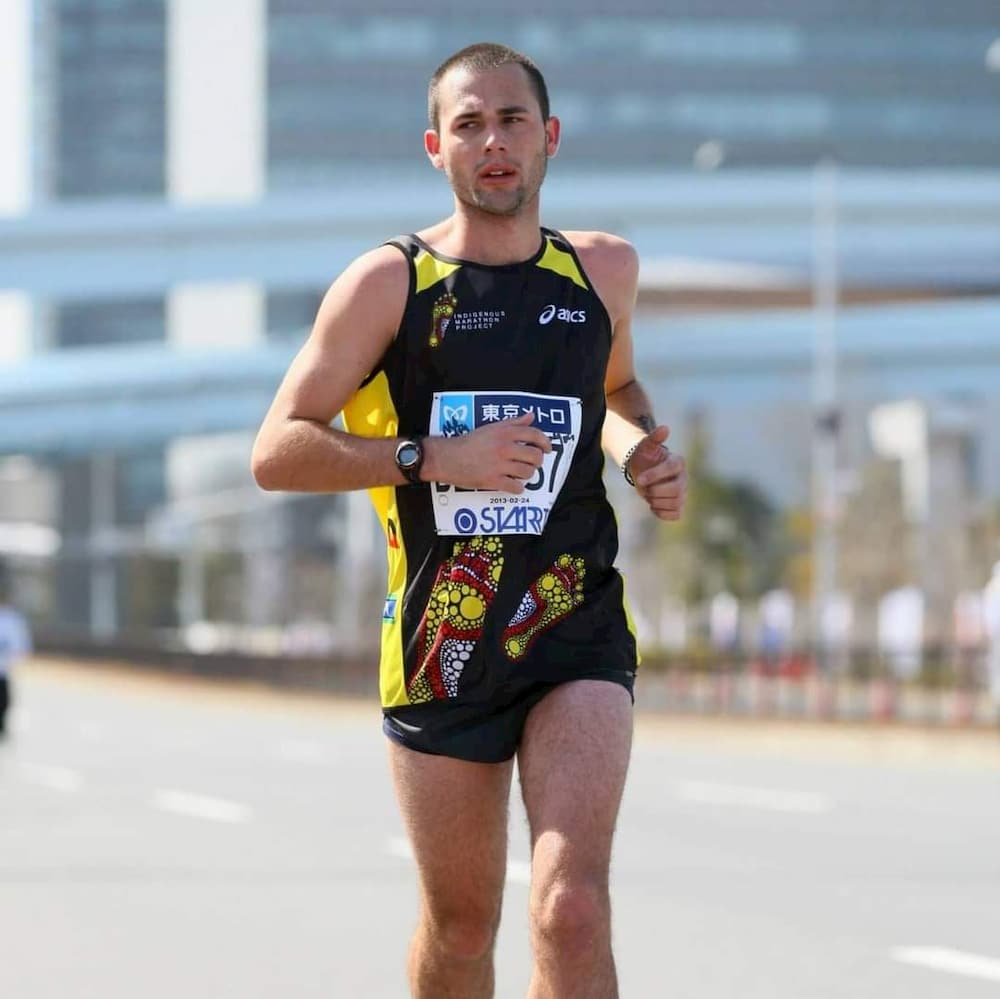Canberra-based Arrernte runner Korey Summers went across the country and around the world with the Indigenous Marathon Project (IMP) in 2012.
He said the physical and mental challenge helped to develop his sense of community leadership and self-confidence.
As applications open for the 2021 project, Korey said participation was an opportunity for Indigenous runners aged 18-30 that they “won’t get anywhere else”.
“You bond with your training partners and learn to be a role model and to better yourself,” he said.
That’s the thing about the Indigenous marathon project, it’s much more than a sporting program.
In 2009 documentary maker Matt Long joined with world marathon champion, Rob de Castella to make the documentary Running to America.
It followed four young Indigenous men as they trained towards the largest marathon in the world, the 50,000-person strong, New York Marathon.
The documentary was the ignition for the Indigenous Marathon Foundation (IMF) which runs the IMP.
Its first winner, Charlie Maher, was Korey’s friend and a fellow Alice Springs runner.
Korey said when he attended the documentary screening he was inspired to become involved.
From base camp in Canberra to a half-marathon at the Gold Coast, Korey soon became acquainted with the hustle and bustle of 10,000-person races.
After six months of training, Korey was back in his hometown of Alice completing a timed 30km run through Honeymoon Gap (in the West MacDonnell Ranges) to qualify for New York.
To avoid the 46-degree heat, he started his run at 4am by moonlight.
When his dedication made him successful, Hurricane Sandy (October-November 2012) threatened it.
After some anxious moments, Korey and his squad were given the go ahead to get to New York, only to be disappointed when the climax of his running season was cancelled.
But this group of emerging leaders didn’t wallow in the setback; instead, they went to the hard-hit Brooklyn and assisted in the hurricane recovery, passing out water and cleaning up debris.
Korey’s time in New York concluded without a marathon; he was back in Alice training in the heat, with his mum handing him food and water from a bike next to him when another opportunity arose.
“They called and said ‘do you want to run a marathon in Tokyo’, and I was like ‘yes’.”
A decade on, the IMP is serious business, open to all Indigenous runners, the squad is now six men and six women.
They kick off their six-month commitment at the AIS in Canberra for a week of education, bonding, and training.
The squad travel around Australia for multiple running events and become accredited in a certificate four in business and coaching and Aboriginal mental health first aid.
IMF general manager Tim Rowe said the program has had 109 graduates so far and helps young Indigenous people believe in themselves.
“This is about leadership. It’s a platform for them to talk about what they want to talk about,” he said.
“So many have gone on to do amazing things.”
An injury has delayed Korey’s athletic progress, but he has since gone on to a career in IT and made the move across the country to Canberra.
He credits the “IMF family” with helping him find his place.
“I travelled most of Australia, but I loved Canberra the most,’ he said.
“I asked them (IMF) to help me move here and they did.
“That’s what happens. People say I want to go to uni or buy a house or a car and they help to try and make that happen.
“That sort of stuff might not really sound big, but in our community it is.
“They help us pursue our dreams.”
Korey is set to make a comeback in the Snowy Mountains Cross Triathlon at Lake Crackenback in February 2021.



